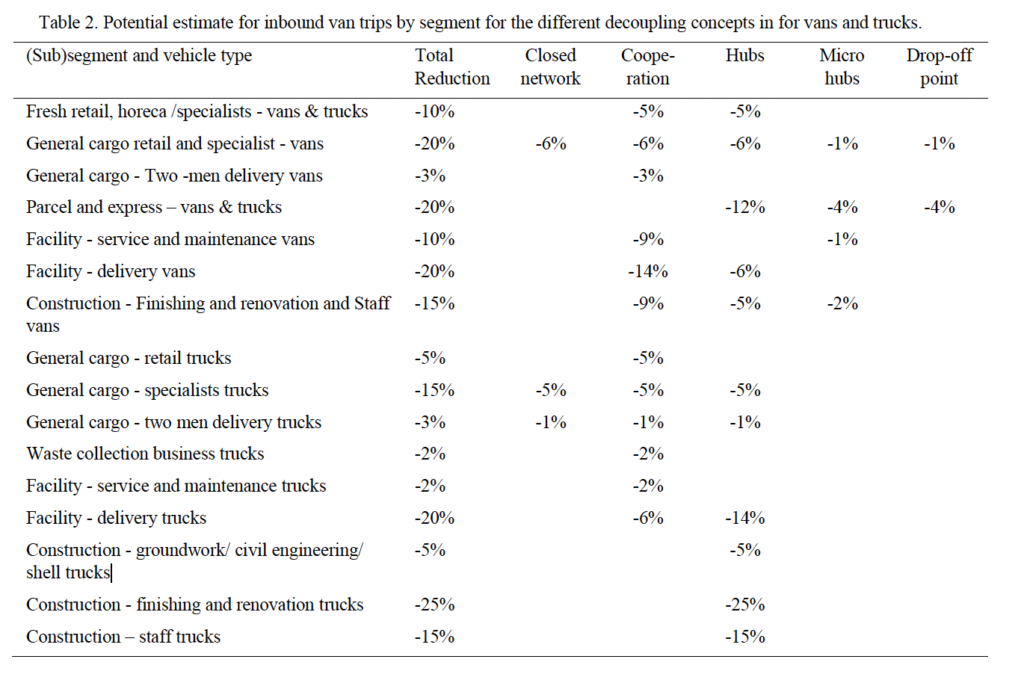The focus must extend beyond merely reducing emissions to achieve a more sustainable city logistics system. Alongside adopting zero-emission vehicles, it is crucial to decrease urban logistics trips due to various urban, environmental, and economic challenges.
To optimize city logistics, a new paper emphasizes the role of hubs and decoupling points, which separate the logistics entering and leaving a city from those in the town. The researchers analyze six distinct hub or decoupling point concepts to assess their potential under current market and legal conditions. By breaking down city logistics into subsegments and urban logistics trip structures, we estimate the realistic trip reduction potential of decoupling points in the current city logistics context.
- Reorganizing city logistics should focus on reducing emissions and also include reducing urban logistics trips to address urban, environmental, and economic challenges.
- Hubs and decoupling points are crucial in optimizing city logistics by separating logistics flows to and from a city from the flows in the town.
- There are six types of decoupling points: hubs in a closed network, network cooperation between transport companies, hubs on the edge of the city, decoupling points for electrification on the last mile, microhubs for area-level consolidation, and drop-off points in the city for pick-ups.
- The feasibility of decoupling points depends on the specific characteristics of a city logistics segment, such as the type of goods and services, vehicle type, operational requirements, trip distance, and number of stops.
- The potential for decoupling concepts varies across different segments and vehicle types. Some segments, such as fresh retail and HoReCa, have a higher potential for decoupling, while others, like waste collection and construction, have less potential.
- The potential reduction in urban freight transport trips through decoupling concepts can range from -2% to -25%, depending on the segment and vehicle type.
- Implementing decoupling concepts requires proactive government involvement, clear policies, space for logistics, and the encouragement of non-logistics parties to promote decoupling in their procurement and contract models.

The paper explores the potential of decoupling concepts, such as hubs and microhubs, in optimizing urban logistics and reducing the environmental impact of freight transport. It highlights the importance of tailoring decoupling solutions to specific segments and the need for proactive government involvement and collaboration with non-logistics parties. The findings emphasize the potential benefits of decoupling concepts regarding emissions reduction, improved safety, and reduced congestion. This research is a valuable resource for policymakers, logistics operators, and stakeholders interested in enhancing urban logistics efficiency and sustainability.
